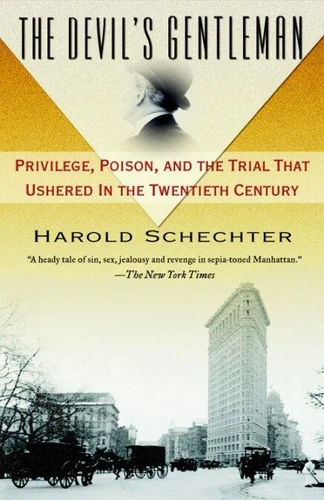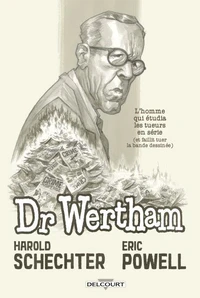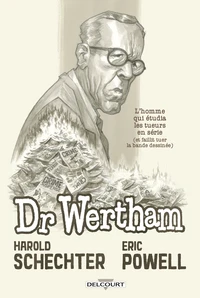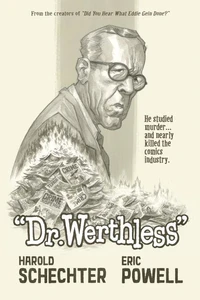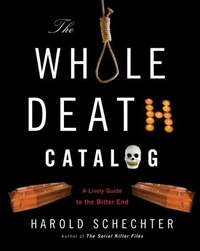The Devil's Gentleman. Privilege, Poison, and the Trial That Ushered in the Twentieth Century
Par :Formats :
Disponible dans votre compte client Decitre ou Furet du Nord dès validation de votre commande. Le format ePub protégé est :
- Compatible avec une lecture sur My Vivlio (smartphone, tablette, ordinateur)
- Compatible avec une lecture sur liseuses Vivlio
- Pour les liseuses autres que Vivlio, vous devez utiliser le logiciel Adobe Digital Edition. Non compatible avec la lecture sur les liseuses Kindle, Remarkable et Sony
- Non compatible avec un achat hors France métropolitaine
 , qui est-ce ?
, qui est-ce ?Notre partenaire de plateforme de lecture numérique où vous retrouverez l'ensemble de vos ebooks gratuitement
Pour en savoir plus sur nos ebooks, consultez notre aide en ligne ici
- Nombre de pages512
- FormatePub
- ISBN978-0-345-50942-0
- EAN9780345509420
- Date de parution30/09/2008
- Protection num.Adobe DRM
- Taille1 Mo
- Infos supplémentairesepub
- ÉditeurBallantine Books
Résumé
From renowned true-crime historian Harold Schechter, whom The Boston Book Review hails as "America's principal chronicler of its greatest psychopathic killers, " comes the riveting exploration of a notorious, sensational New York City murder in the 1890s, the fascinating forensic science of an earlier age, and the explosively dramatic trial that became a tabloid sensation at the turn of the century.
Death was by poison and came in the mail: A package of Bromo Seltzer had been anonymously sent to Harry Cornish, the popular athletic director of Manhattan's elite Knickerbocker Athletic Club. Cornish barely survived swallowing a small dose; his cousin Mrs. Katherine Adams died in agony after ingesting the toxic brew. Scandal sheets owned by Hearst and Pulitzer eagerly jumped on this story of fatal high-society intrigue, speculating that the devious killer was a chemist, a woman, or "an effeminate man." Forensic studies suggested cyanide as the cause of death; handwriting on the deadly package and the vestige of a label glued to the bottle pointed to a handsome, athletic society scamp, Roland Molineux.
The wayward son of a revered Civil War general, Molineux had clashed bitterly with Cornish before. He had even furiously denounced Cornish when penning his resignation from the Knickerbocker Club, a letter that later proved a major clue. Bon vivant Molineux had recently wed the sensuous Blanche Chesebrough, an opera singer whose former lover, Henry Barnet, had also recently died .
Death was by poison and came in the mail: A package of Bromo Seltzer had been anonymously sent to Harry Cornish, the popular athletic director of Manhattan's elite Knickerbocker Athletic Club. Cornish barely survived swallowing a small dose; his cousin Mrs. Katherine Adams died in agony after ingesting the toxic brew. Scandal sheets owned by Hearst and Pulitzer eagerly jumped on this story of fatal high-society intrigue, speculating that the devious killer was a chemist, a woman, or "an effeminate man." Forensic studies suggested cyanide as the cause of death; handwriting on the deadly package and the vestige of a label glued to the bottle pointed to a handsome, athletic society scamp, Roland Molineux.
The wayward son of a revered Civil War general, Molineux had clashed bitterly with Cornish before. He had even furiously denounced Cornish when penning his resignation from the Knickerbocker Club, a letter that later proved a major clue. Bon vivant Molineux had recently wed the sensuous Blanche Chesebrough, an opera singer whose former lover, Henry Barnet, had also recently died .
From renowned true-crime historian Harold Schechter, whom The Boston Book Review hails as "America's principal chronicler of its greatest psychopathic killers, " comes the riveting exploration of a notorious, sensational New York City murder in the 1890s, the fascinating forensic science of an earlier age, and the explosively dramatic trial that became a tabloid sensation at the turn of the century.
Death was by poison and came in the mail: A package of Bromo Seltzer had been anonymously sent to Harry Cornish, the popular athletic director of Manhattan's elite Knickerbocker Athletic Club. Cornish barely survived swallowing a small dose; his cousin Mrs. Katherine Adams died in agony after ingesting the toxic brew. Scandal sheets owned by Hearst and Pulitzer eagerly jumped on this story of fatal high-society intrigue, speculating that the devious killer was a chemist, a woman, or "an effeminate man." Forensic studies suggested cyanide as the cause of death; handwriting on the deadly package and the vestige of a label glued to the bottle pointed to a handsome, athletic society scamp, Roland Molineux.
The wayward son of a revered Civil War general, Molineux had clashed bitterly with Cornish before. He had even furiously denounced Cornish when penning his resignation from the Knickerbocker Club, a letter that later proved a major clue. Bon vivant Molineux had recently wed the sensuous Blanche Chesebrough, an opera singer whose former lover, Henry Barnet, had also recently died .
Death was by poison and came in the mail: A package of Bromo Seltzer had been anonymously sent to Harry Cornish, the popular athletic director of Manhattan's elite Knickerbocker Athletic Club. Cornish barely survived swallowing a small dose; his cousin Mrs. Katherine Adams died in agony after ingesting the toxic brew. Scandal sheets owned by Hearst and Pulitzer eagerly jumped on this story of fatal high-society intrigue, speculating that the devious killer was a chemist, a woman, or "an effeminate man." Forensic studies suggested cyanide as the cause of death; handwriting on the deadly package and the vestige of a label glued to the bottle pointed to a handsome, athletic society scamp, Roland Molineux.
The wayward son of a revered Civil War general, Molineux had clashed bitterly with Cornish before. He had even furiously denounced Cornish when penning his resignation from the Knickerbocker Club, a letter that later proved a major clue. Bon vivant Molineux had recently wed the sensuous Blanche Chesebrough, an opera singer whose former lover, Henry Barnet, had also recently died .

